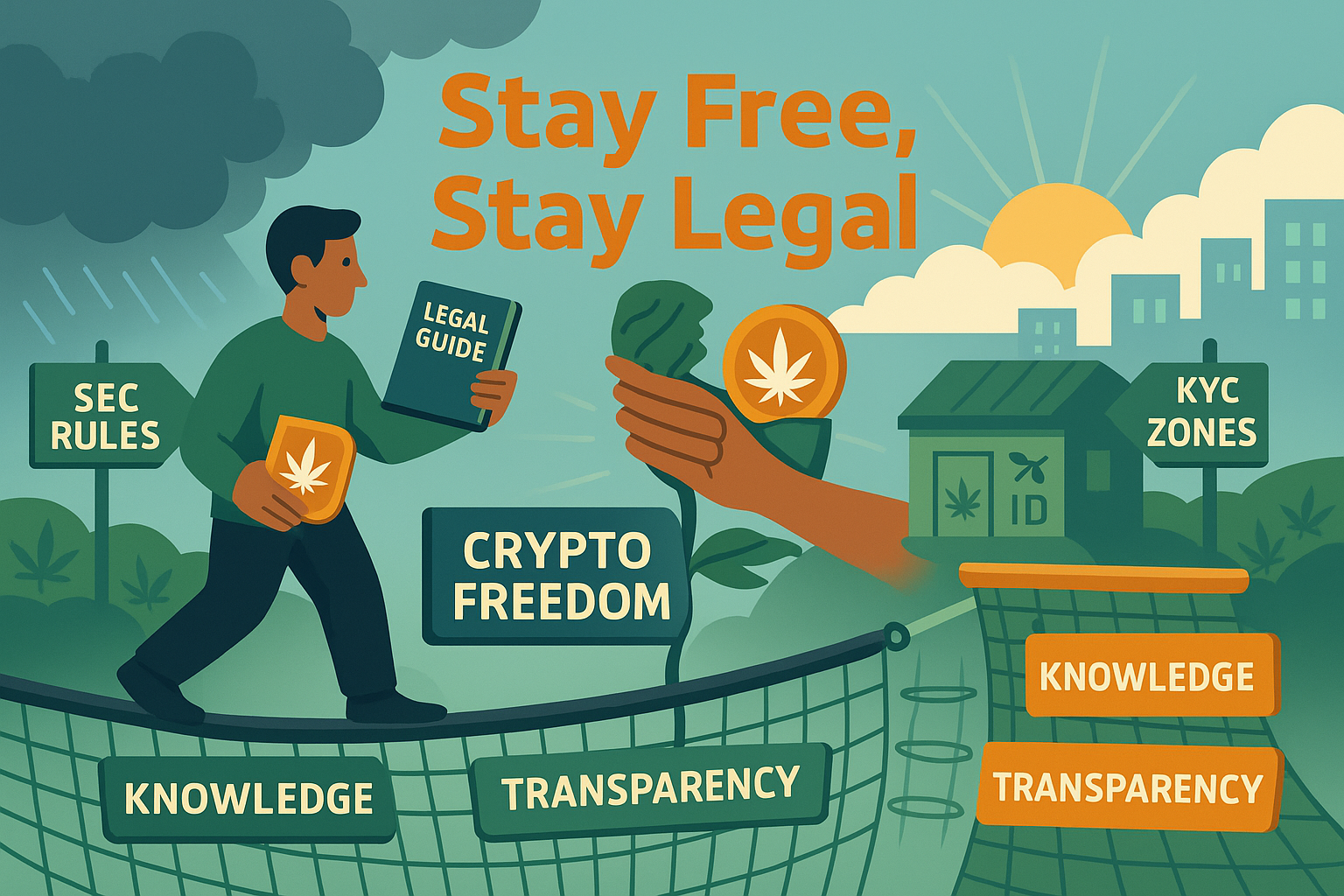Crypto Regulation 101: WeedCoin’s Guide to Legal Basics
Crypto might be decentralized — but it’s not lawless. Here’s what every holder needs to know.
Decentralization doesn’t mean there are no rules — it just means the rules are still being written. As crypto grows, governments are racing to catch up, creating regulations that vary wildly across borders, blockchains, and tax brackets. Whether you’re flipping tokens or building Web3 tools, understanding the basics of crypto regulation is essential.
In this article, we’ll break down what’s happening on the legal side of crypto, how it affects WeedCoin users, and what you can do to stay smart and compliant while still enjoying your financial freedom.

Crypto Is Legal — But Not Fully Defined
Most countries allow the use of cryptocurrency, but they don’t all agree on what it is. Some treat it like property. Others call it currency. Some say it’s a security. These definitions matter because they affect how crypto is taxed, traded, and reported.
WeedCoin users should know that legal acceptance doesn’t mean zero oversight. It means responsibility — and staying informed as the legal landscape evolves.
Centralized Exchanges Face More Scrutiny
If you’re using a big-name exchange (like Coinbase, Binance, or Kraken), expect KYC (Know Your Customer) checks, account monitoring, and government reporting. These platforms are being pulled into tighter regulatory frameworks — including tax enforcement and transaction tracking.
WeedCoin can still be traded on decentralized exchanges, but users should understand the difference: centralized platforms offer ease and access, while decentralized ones offer privacy and freedom — with fewer built-in safeguards.
The SEC and “Security” Status
In the U.S., the Securities and Exchange Commission (SEC) decides whether a token is a “security.” If it is, it must follow strict rules designed for stocks — including disclosures and registrations. Many tokens have been fined or delisted for failing to comply.
WeedCoin is positioned as a utility and culture coin — not a security — and we avoid promises of profit, relying instead on education, community, and usage value.
Global Crypto Laws Are All Over the Map
In some countries, crypto is embraced. In others, it’s restricted or banned. Regulations on stablecoins, DeFi, NFTs, and wallet privacy vary wildly. That’s why it’s crucial to know your local laws and avoid assumptions based on global trends.
WeedCoin users are encouraged to check what’s legal in their region — especially when trading, staking, or launching cannabis-related projects.
You’re Still Responsible for Reporting
No matter how decentralized your wallet is, if you’re earning, selling, or spending crypto, you may owe taxes. Many countries now require crypto income to be reported, and ignoring it can lead to audits or penalties.
WeedCoin promotes transparency and education — not just on how to use crypto, but how to stay clean while doing it.
Practical Tips
Learn how your country defines and taxes cryptocurrency
Use DEXs for more privacy, but know they require more self-responsibility
Don’t assume anonymity — blockchains are public, even if wallets are pseudonymous
Keep records of your trades, purchases, and staking rewards
WeedCoin will never promise returns — that’s how real projects stay compliant
Key Takeaways
Crypto is legal in most places, but still subject to regulation
Exchanges, wallets, and tokens must follow local laws
WeedCoin is a utility token with cultural value — not an investment contract
Global laws vary — always check your local crypto rules
Transparency and education protect you more than pretending rules don’t apply
Crypto’s not a loophole — it’s a new lane.
WeedCoin gives you the tools to stay in that lane safely, confidently, and legally.













